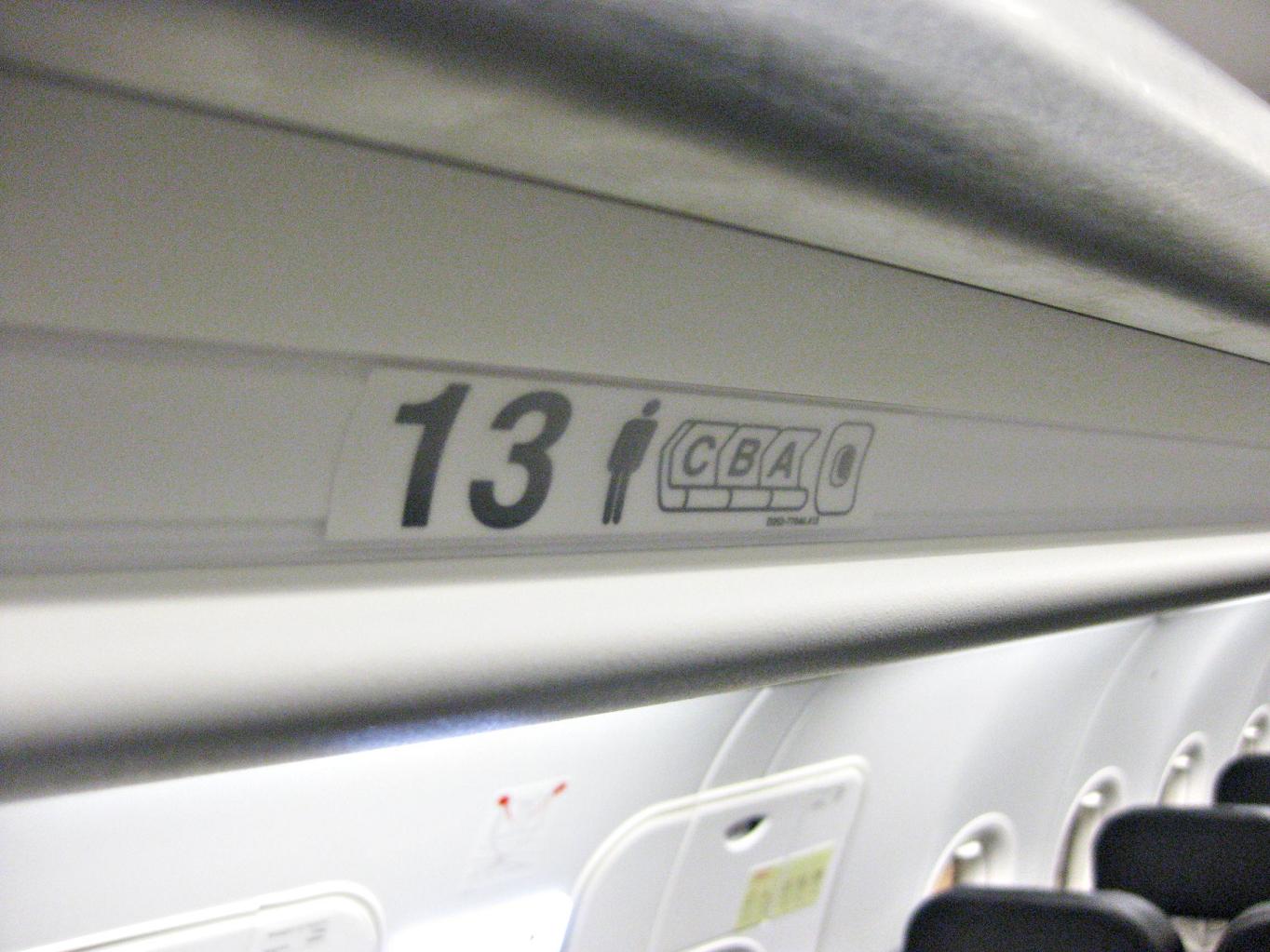Have you ever boarded a plane and noticed you have never been allocated a seat on row 13? Only to realise that row 13 is missing altogether? This is a practice followed by many airlines worldwide, acknowledging the unlucky superstitions surround the number. Read on to find out more.
Skipping row 13
We all have our superstitions in life. Having a cocktail or cup of tea in the airport before our flight, before then going on to browse duty free, are traditions many of us follow when at the airport. Passengers aren’t the only people to abide by certain rituals however, as a large majority of airlines skip row 13 on their aircrafts, acknowledging the widespread belief that the number is unlucky.
Unlucky for some
The official term for the fear of the number 13 is triskaidekaphobia. There are several theories that attempt to explain why the number is unlucky. Some attribute its negative associations to Jesus’ last supper, where there were 13 disciples, and Judas, his betrayer, was the 13th to be seated.

Alongside some of the airlines mentioned above, there are plenty of other industries that adhere to the superstition, with many hotels and office buildings skipping the 13th floor.
Skipping other numbers
Of course, superstitions vary across countries and cultures. In countries like Italy, China and Brazil, numbers 14 and 17 are also considered unlucky and will also be excluded from some airlines’ aircrafts, including Lufthansa and Cathay Pacific and Alitalia once again.
What do you think of these airlines’ superstitious practices? Would you feel safe sitting on row 13? Share your thoughts below!










